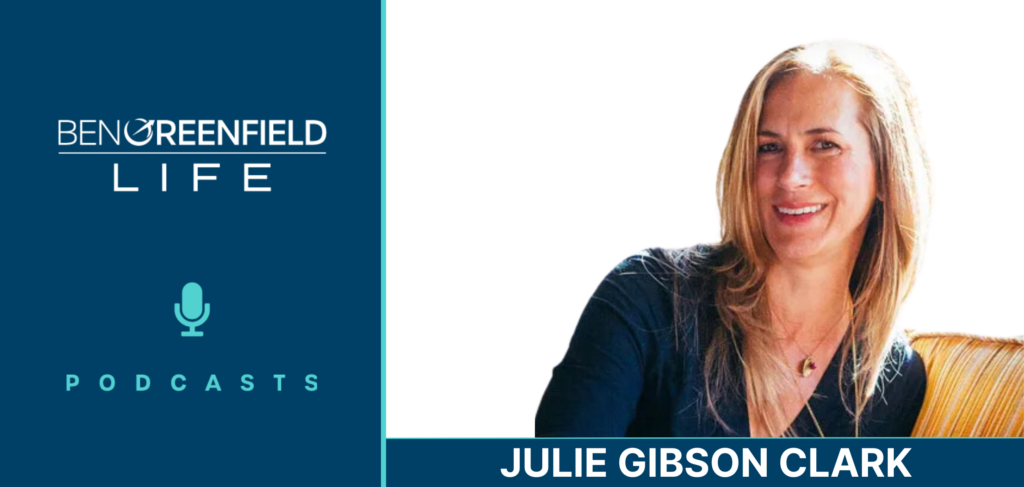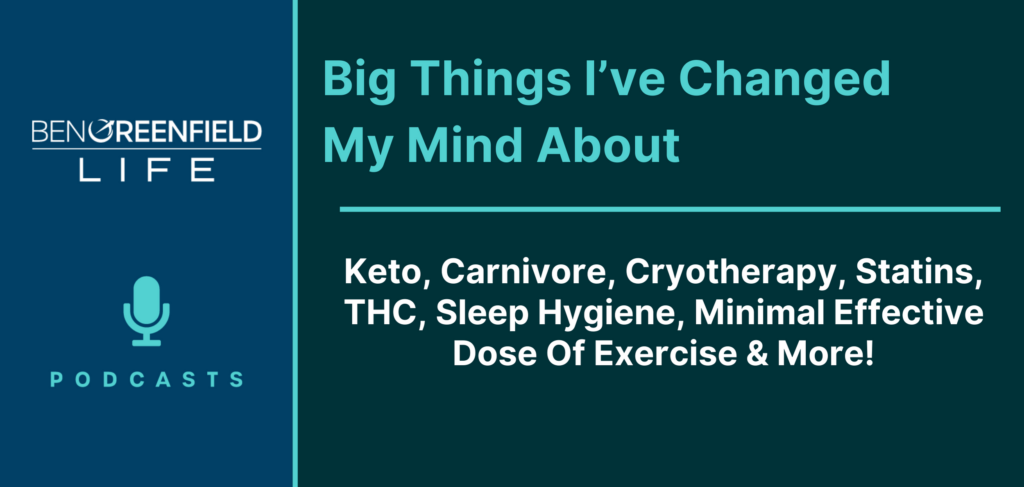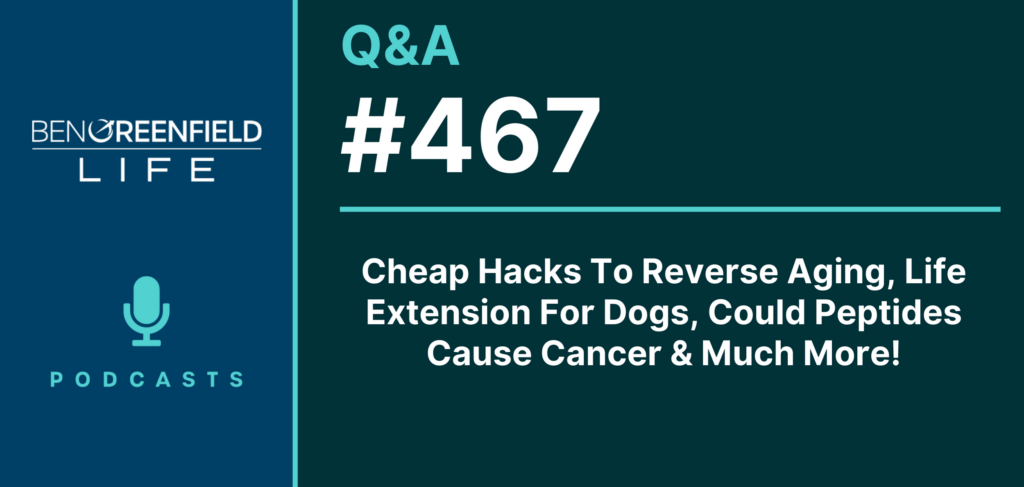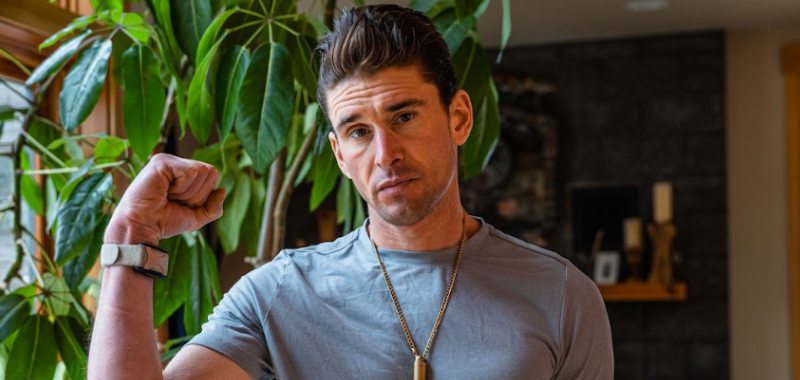July 23, 2016
Click here for the full written transcript of this podcast episode.
Muscle is not for bodybuilders anymore. Instead muscle (not the big, bulky stuff, but the tight, toned lean stuff) is now heavily correlated with everything from anti-aging to cognitive performance to metabolism and beyond. So it's pretty darn important, even if you have no desire to strut in a Speedo on muscle beach.
But have you ever wondered how fast you lose muscle when you stop working out?
How about how muscle you can expect to lose when you age?
The best way to maintain muscle?
From cutting-edge NASA research on maintaining maximum muscle as you age to the surprising nutrients that have been proven by science to keep muscle on your body as long as possible, you're about to discover all these answers and much more in today's podcast.
My guest in today's episode, Alex James Ritson, is currently finalizing a Master's degree in Sport and Exercise Nutrition at Middlesex University in London, is co-owner of Lean Body Performance, an online nutrition and training coaching company and is very well-versed in a particular area of interest that he has: how protein intake affects lean muscle preservation.
During our discussion, you'll discover:
Resources from this episode:
–Compex for electronic stimulation 10-15 minutes per day
–10-20g essential amino acids per day
–10g creatine monohydrate per day
–800-1000IU Vitamin D3 per day
–This article on a new NASA exercise device for muscle maintenance
–Live strong and prosper: the importance of skeletal muscle strength for healthy ageing.
–Nutritional strategies to attenuate muscle disuse atrophy.
Do you have questions, comments or feedback for Alex or me? Leave your thoughts below and one of us will reply!














Hi Ben
Im getting surgery on my rotator cuff next week and alight I won’t be bed ridden my left are is going to be in a sling for 3 weeks I’ve been told by my surgeon and about 3 month timeline till I’m back to full strength so I’m going to be training around my shoulder as well as implementing some things mentioned in the podcast I already take fish oils,creatine and leucine daily so Im pleased I’m on the right track, Im also going to try BCP157 & TB500 for the first 6 weeks after surgeon and give myself every fighting chance to recovery quicker, thanks for the great info on all your podcasts, keep up the great work
Have a listen to the question on healing ligaments and tendons here: https://bengreenfieldfitness.com/2016/10/360-poop…
THANK YOU…. boy i stumbled across this at the right time. 54 years old, been training for many years with good bit of muscle. Have a major shoulder surgery coming up that will keep me from training for about 6 months.. so I am FREAKING OUT about losing muscle. I want to do everything I can to lesson the muscle loss. This podcast was a ton of help.. my take away was.. plenty of protein, creatine, maintenance calories… i already take fish oil and vitamin D.. so good there.
I do wonder about heavy leg workouts that might help with overall muscularity . My urologist has been recommending TRT for me based on lab results.. I have resisted, but perhaps starting it post surgery could help.
Thanks again Ben, this was a gem for me to find.
Very interesting podcast!
For maintaining muscle I would focus on optimising hormonal balance like making sure testosterone levels are good. Testosterone is crucial for muscle growth and maintaining levels.
Avoid protein before or directly after workouts, it will lower the testosterone and growth hormone boosting effect of your workout as clearly shown in this study:
http://www.ncbi.nlm.nih.gov/pubmed/16286871
There are many dietary, exercise and natural botanical therapies to help maintain high testosterone levels and optimise hormonal balance.
Ben has many good articles on this blog that relate to this. Personally, I would recommend people to look into a herb called Tongkat Ali.
Hi Ben,
Just wanted to start off by saying really enjoy the podcast, I listen to it for about 2 hours a day during my train rides. My question is based on all the various podcasts you talk about different supplements. In order to build lean muscle what supplement stack would you use? Over the last few podcasts you have talked about Fish Oil, Creatine, Amino Acids and protein. Is there anything I am missing for building lean muscle?
I'd start here: https://greenfieldfitnesssystems.com/product/musc… and also check out the show notes on this page because there's a bunch of stuff there!
Great podcast. Found it very informative and entertaining. I found the topic of Kaatsu training to be especially interesting and did a bit more research. I came across this article on it as a how to guide;
http://www.bodybuilding.com/fun/your-complete-gui…
I was curious to know what product was used for the Kaatsu training that you mentioned and how it was determined how tightly to apply the wraps. In the above article it was based on subjective interpretation of the wrap tightness. My concern is one of the products they used are tensor wraps. In my own practice where I am looking after patients with lower leg edema related to venous disease or lymphedema we use a short stretch (a little give) bandage/wrap on the lower leg which will deliver a constant pressure (10-40 mmHg at the ankle) to reduce edema. In contrast, tensor wraps are long stretch bandages (very stretchy). The problem is they they have higher resting pressure and lower active pressure when limb is moving such as in walking/bending. If the resting pressure is too high there I feel there is an increased risk of arterial blood flow restriction and a person may not get the true benefit of the Kaatsu training.
I would be interested to hear your thoughts on this.
For Kaatsu training I have personally done, I used something like this: https://amzn.to/2aA2mEJ – but the one used i studies usually has an mmHg controller on it for getting an exact pressure. You concerns about pressure are likely well founded unless using a programmable device like that.
Good stuff! I just wanted to share my personal experience in this matter to add to your case studies. I am a 31 yo female and have a good bit of muscle mass. I’ve been weight lifting at least 3 days/week since college where I ran T&F.
For the last 8 months, I have exercised anywhere from 0-4 times in a week always at a very low intensity and even went an entire month with zero exercise due to 2 herniated discs and some nerve root compression.
I eat what is considered to be a high protein, high fat diet and take many of the supplements discussed in this podcast.
While I have many days where I feel sluggish and very weak, I have not actually lost a lot of muscle. Muscluar strength in my upper body I think has remained the same, but lower body I’m sure has decreased. Have no way of really testing it though.
So during the month of no exercise, I was still coaching an average of 3 crossfit classes a day plus 1 or 2 hours of personal training. So I haven’t been bed ridden, just exercising at less than 50% of what I’m used to for 8 months.
Ugh… Ben why do you do this! Your trying to extrapolate a general dietary protocol from one study of an elite athlete? That is the most scientifically dishonest interpretation of a study possible . Even your expert cautioned about drawing any conclusion. Your going to either tell someone to do something that won’t help them or possibly worst.
I find value in N=1 experimentation and like to keep myself appraised of results in situations like that, even if not applicable to everyone on the planet they can be valuable…
This is really good and I know it’s going to help me out í ½í±í ½í±í ½í²ª
Hi, Ben,
I had a question regarding the segment on Fish Oil (FO).
Based on the discussed research it sounds like Fish Oil may be detrimental to anabolic signaling & may not help with muscle protein synthesis. However, it seems there’s tons of benefits to taking it & I really don’t want to stop using it. I believe you’ve mentioned in a previous episode that you take close to around 4-6 g a day. Jujimufu (in a previous ep) said he takes nearly 40 g a day.
Does this become a question of dosage and timing? Should FO not be taken around workout times (either before or after) to not affect anabolic signaling?
Does the use of FO only blunt the increases in anabolic signaling, but leave it at a basal level? Or does it (at some point in dosage) suppress anabolic signaling below basal?
Finally does this podcast change your own recommendations on FO intake?
Thanks for your time, Ben!
Ron, Michael and Celeste please excuse me for my delivery. I have a tendency to speak a million miles an hour, which I’m sure doesn’t help with my British accent. It’s something I’m working on! Any questions, just shoot, always happy to educate =).
Hi Ben, would you be prepared to expand on your cyclical protein approach. Do you increase protein both prior to and after strength training? If so for how long?
I concur with Celeste’s comments!
I’m 62 had a stroke 2 years ago and need to get back in shape what do you suggest Nutrition and exercise plz help me!!!
Very interested in the topic but could use a transcript. Sound quality, accent, and speed at which Alex talks makes it difficult to catch everything he says. :)
I had same problem.